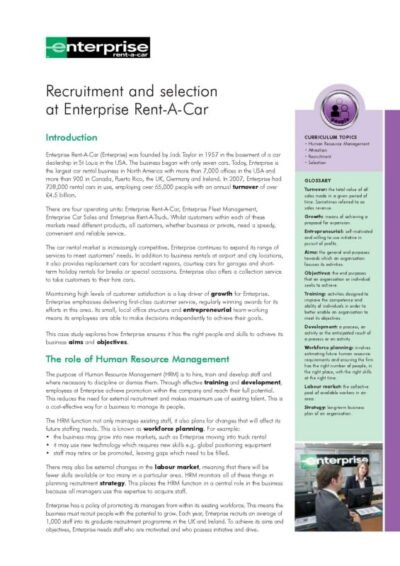Legal Process Outsourcing (LPO) has emerged as a significant trend within the legal industry, driven by the need for law firms and corporate legal departments to enhance efficiency and reduce costs. This practice involves delegating specific legal tasks and processes to external service providers, often located in different geographical regions. The rise of LPO can be attributed to various factors, including the increasing complexity of legal work, the demand for cost-effective solutions, and the rapid advancement of technology that facilitates remote collaboration.
As legal professionals seek to optimise their operations, LPO presents an attractive alternative to traditional in-house practices. The concept of outsourcing legal processes is not entirely new; however, its evolution has been accelerated by globalisation and the proliferation of technology. Law firms are now able to tap into a vast pool of talent and resources that were previously inaccessible.
This shift allows them to focus on core competencies while delegating routine or specialised tasks to external providers. The LPO market has expanded significantly, with providers offering a wide range of services, from document review and legal research to contract management and compliance support. As the legal landscape continues to evolve, understanding the intricacies of LPO becomes essential for legal practitioners aiming to remain competitive.
Summary
- Legal Process Outsourcing (LPO) involves the delegation of legal work to external service providers to reduce costs and increase efficiency.
- The benefits of LPO include cost savings, access to specialized expertise, increased flexibility, and improved focus on core legal activities.
- Commonly outsourced legal services include document review, contract management, legal research, intellectual property services, and litigation support.
- When choosing an LPO provider, it is important to consider factors such as expertise, reputation, data security measures, and cultural compatibility.
- Key considerations for LPO include clear communication, defined service levels, data protection compliance, and a well-defined exit strategy.
Benefits of Legal Process Outsourcing
One of the primary advantages of Legal Process Outsourcing is cost reduction. By outsourcing certain legal functions, firms can significantly lower their operational expenses. This is particularly relevant in jurisdictions where labour costs are substantially lower than in the firm’s home country.
For instance, many firms in the United States have turned to LPO providers in India or the Philippines, where skilled legal professionals can perform tasks at a fraction of the cost. This financial benefit allows firms to allocate resources more effectively, investing in higher-value services that require specialised expertise. In addition to cost savings, LPO enhances efficiency and productivity within legal teams.
By offloading routine tasks such as document review or data entry, in-house lawyers can concentrate on more strategic activities that require their unique skills and insights. This not only improves job satisfaction among legal professionals but also leads to faster turnaround times for clients. For example, a law firm that outsources its e-discovery process can expedite litigation timelines, providing clients with timely updates and resolutions.
The ability to scale operations quickly in response to fluctuating workloads is another significant benefit, allowing firms to manage peaks in demand without the need for permanent hires.
Types of Legal Services Outsourced

The scope of services that can be outsourced under the umbrella of Legal Process Outsourcing is extensive. Commonly outsourced tasks include document review, legal research, contract management, and compliance support. Document review is particularly prevalent in litigation and regulatory matters, where large volumes of documents must be examined for relevance and privilege.
LPO providers often employ advanced technologies such as artificial intelligence to streamline this process, ensuring accuracy while reducing the time required for completion. Legal research is another area where outsourcing has gained traction. Law firms can engage LPO providers to conduct comprehensive research on case law, statutes, and regulations, allowing in-house attorneys to focus on applying this information strategically rather than gathering it.
Additionally, contract management services are increasingly outsourced as firms seek to improve their contract lifecycle management processes. This includes drafting, reviewing, and negotiating contracts, which can be time-consuming and require meticulous attention to detail. By outsourcing these functions, firms can enhance their operational efficiency while ensuring compliance with relevant laws and regulations.
How to Choose the Right Legal Process Outsourcing Provider
Selecting an appropriate Legal Process Outsourcing provider is a critical decision that can significantly impact a firm’s operations and client relationships. The first step in this process involves conducting thorough due diligence on potential providers. This includes assessing their expertise in specific legal areas, understanding their operational capabilities, and evaluating their technological infrastructure.
A provider with a strong track record in handling similar tasks will likely be more adept at meeting a firm’s unique needs. Moreover, it is essential to consider the provider’s approach to data security and confidentiality. Given the sensitive nature of legal work, firms must ensure that their chosen LPO partner adheres to stringent security protocols and complies with relevant regulations such as GDPR or HIPAEngaging in discussions about data protection measures and obtaining references from other clients can provide valuable insights into a provider’s reliability and commitment to safeguarding sensitive information.
Key Considerations for Legal Process Outsourcing
When contemplating Legal Process Outsourcing, several key considerations must be taken into account beyond just cost and efficiency. One significant factor is the cultural alignment between the law firm and the LPO provider. Cultural differences can impact communication styles, work ethics, and overall collaboration.
Establishing a strong working relationship built on mutual understanding is crucial for successful outsourcing arrangements. Additionally, firms should evaluate the scalability of the LPO provider’s services. As legal needs evolve over time, it is vital that the chosen partner can adapt to changing requirements without compromising quality or efficiency.
This flexibility may involve expanding service offerings or adjusting staffing levels in response to increased demand. Furthermore, ongoing communication and feedback mechanisms should be established to ensure that both parties remain aligned throughout the outsourcing relationship.
The Future of Legal Process Outsourcing

The future of Legal Process Outsourcing appears promising as technological advancements continue to reshape the legal landscape. The integration of artificial intelligence and machine learning into LPO services is expected to enhance efficiency further by automating routine tasks and providing predictive analytics for case outcomes. As these technologies become more sophisticated, they will enable LPO providers to deliver even greater value to law firms by streamlining processes and reducing turnaround times.
Moreover, as more firms recognise the benefits of LPO, the market is likely to expand beyond traditional services into more complex areas such as litigation support and regulatory compliance. This evolution will necessitate a shift in how law firms approach outsourcing; rather than viewing it solely as a cost-saving measure, they will increasingly see it as a strategic tool for enhancing service delivery and client satisfaction. As competition intensifies within the legal sector, those firms that embrace LPO as part of their operational strategy will be better positioned to thrive in an ever-changing environment.
Common Misconceptions about Legal Process Outsourcing
Despite its growing popularity, several misconceptions about Legal Process Outsourcing persist within the legal community. One prevalent myth is that outsourcing equates to a loss of control over legal processes. In reality, effective outsourcing arrangements involve close collaboration between law firms and their LPO providers.
By establishing clear communication channels and performance metrics, firms can maintain oversight while benefiting from the efficiencies offered by external partners. Another common misconception is that outsourcing compromises quality. While concerns about quality are valid, many reputable LPO providers employ highly skilled professionals who adhere to rigorous quality control standards.
By conducting thorough due diligence when selecting an LPO partner and establishing clear expectations from the outset, law firms can mitigate risks associated with quality assurance. Furthermore, many LPO providers leverage technology to enhance accuracy and consistency in their work, further dispelling this myth.
Case Studies: Successful Legal Process Outsourcing Implementations
Numerous case studies illustrate the successful implementation of Legal Process Outsourcing across various sectors within the legal industry. One notable example involves a large corporate law firm that faced challenges managing its growing litigation caseload. By partnering with an LPO provider specialising in document review and e-discovery services, the firm was able to reduce its document review time by 50%.
This not only improved client satisfaction through faster case resolutions but also allowed attorneys to focus on higher-value strategic tasks. Another compelling case study comes from a multinational corporation that sought to streamline its contract management process. By outsourcing contract drafting and review tasks to an experienced LPO provider, the company achieved significant improvements in turnaround times while maintaining compliance with internal policies and external regulations.
The partnership enabled the corporation’s legal team to allocate more time towards strategic initiatives rather than being bogged down by routine administrative tasks. These examples underscore the transformative potential of Legal Process Outsourcing when implemented thoughtfully and strategically within law firms and corporate legal departments alike. As the industry continues to evolve, embracing LPO may well become a standard practice for those seeking to enhance operational efficiency while delivering exceptional value to clients.
Legal Process Outsourcing (LPO) is a growing trend in the legal industry, with many firms opting to outsource certain legal tasks to external providers. This allows them to focus on more strategic and high-value work. For more information on how outsourcing can benefit businesses, check out this article on the marketing mix. It provides insights into how companies can effectively market their services and reach a wider audience.
FAQs
What is Legal Process Outsourcing (LPO)?
Legal Process Outsourcing (LPO) is the practice of a law firm or corporation obtaining legal support services from an external provider. These services can include research, document review, drafting of legal documents, and other tasks that can be performed remotely.
What are the benefits of Legal Process Outsourcing?
Some of the benefits of Legal Process Outsourcing include cost savings, access to a larger talent pool, increased efficiency, and the ability to focus on core legal activities.
What types of legal tasks can be outsourced through LPO?
Legal tasks that can be outsourced through LPO include legal research, document review, contract drafting, due diligence, intellectual property services, and litigation support.
What are the potential risks of Legal Process Outsourcing?
Potential risks of Legal Process Outsourcing include data security concerns, quality control issues, and the need for effective communication and coordination between the outsourcing provider and the client.
What are the key considerations when choosing a Legal Process Outsourcing provider?
Key considerations when choosing a Legal Process Outsourcing provider include the provider’s expertise in the specific legal area, their track record, data security measures, and their ability to provide timely and accurate services.
 Subscribing to broadcasting success (PDF)
Subscribing to broadcasting success (PDF)  Recruitment and selection at Enterprise Rent-A-Car (PDF)
Recruitment and selection at Enterprise Rent-A-Car (PDF) 